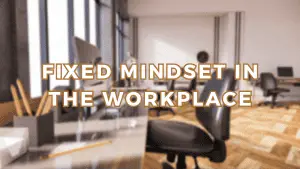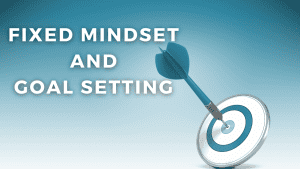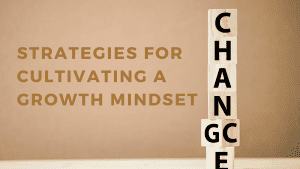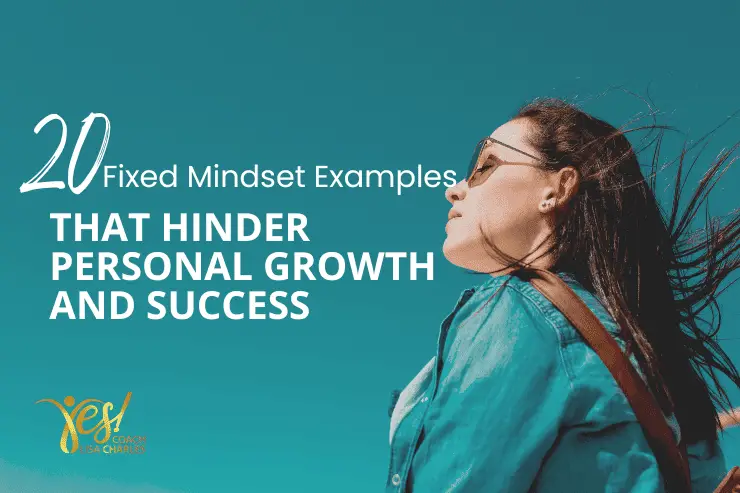20 Fixed Mindset Examples That Hinder Personal Growth and Success
The truth may be a “tough pill to swallow,” but doing so is essential to moving forward. Acceptance of that truth empowers you to figure out solutions to meet the challenge.
– Lisa Charles (Yes! Commit. Do. Live.)
People with fixed mindsets don’t see life, circumstances, or themselves as fluid and capable of change. For example, they believe that intelligence, skill, and other positive traits are qualities you either have or don’t.
But people with growth mindsets or open mindests see things differently. They believe that any personal quality can be changed or developed, leaving plenty of room for possibility regarding life and personal evolution.
Which of these two mind-sets can significantly affect a person’s ability to develop as people and succeed in life? For that reason, identifying fixed mindset thought patterns is critical. Let’s get into some fixed mindset examples you might run into in various aspects of your life.
Fixed Mindset Examples in Education

A person’s educational life is often their first introduction to the larger world and one of the first places fixed mindset thinking can improve your manifestations. Examples include:
1. Fear of failure
“Doing things this way is way too difficult, so I’ll just take the easy way out.”
2. Viewing effort as fruitless
“I’ll never figure this out. I might as well just give up.”
3. Ignoring constructive criticism
“My English teacher hates me for no good reason. That’s why she’s constantly pushing me.”
4. Equating failure with weakness
“I can’t believe I failed that math test. I’m so pathetic.”
5. Comparison with other people
“Sarah and Tom are so good at art. I’ll never be able to draw like they can.”
Educators can help facilitate a growth-oriented mindset in students by encouraging experimentation and exploration outside one’s comfort zone. Praising and investing in all efforts, not just results, is also crucial.
Fixed Mindset in the Workplace

Fixed mindset thinking that isn’t addressed earlier in life can easily carry over into their ongoing professional life. Here are some ways that can look:
6. Reluctance to take on new responsibilities
“There’s no way I’d be able to handle upper management. I’ll just stay where I am.”
7. Being threatened by colleagues’ success
“Jim is a total natural at managing our clients. He’s making me look bad.”
8. Refusing to adapt to change
“I don’t see why I need to learn how to engage leads on TikTok. Our social media marketing strategy is fine the way it is.”
9. Focusing on the outcome instead of the process
“These new sales standards are so high. I’ll never manage to meet them.”
10. Not leaning into challenges
“This new computer software is impossible. I don’t see how Jane can say she’s enjoying learning it.”
Employers can facilitate a growth-oriented mind-set in team members by offering opportunities for ongoing skill-building and personal self-development. Make your workplace an inclusive, supportive place to be all around.
Fixed Mindset in Relationships

Mindset doesn’t just matter regarding your academic or professional success in life. It can affect the quality of your relationships, self-esteem, and personal development, as well. Here are some fixed mindset examples to be aware of:
11. Fear of rejection
“If I ever really open up to my partner, they won’t like what they see.”
12. Inability to forgive
“I can’t believe they forgot our first-date anniversary. Saying ‘I’m sorry’ doesn’t make it better.”
13. Not putting effort into relationships
“By now they should just know I love them. Why do they need to hear it so often?”
14. Belief that differences are flaws
“I can’t believe they prefer staying in to going out. They should work hard on that.”
15. Belief that relationships should be easy
“If this were really a good relationship, I wouldn’t have to compromise.”
Anyone can cultivate stronger, more fulfilling relationships by prioritizing empathy and open, honest communication. Actively support one another and accept one another.
Fixed Mindset and Goal Setting

Clinging to a fixed mindset can stop you from reaching your goals and otherwise achieving your full potential. Here’s how such thinking might look:
16. Setting safe, mediocre Set goals
“I don’t like failure, so I’ll just stick to things I know I can accomplish.”
17. Giving up on goals at the first obstacle
“I can’t believe the funding fell through for this project. I knew it wasn’t meant to be.”
18. Not seeking help and support
“If I’m meant to succeed at this, I’ll be able to do it all myself.”
19. Black-and-white thinking
“If I’m not a total success, then I’m a failure.”
20. Self-limiting beliefs
“I’m way too old to learn a new language.”
Address beliefs like these by taking action to achieve goals that are both compassion, realistic, and ambitious. Always remember that success isn’t just about the result. It’s important to embrace and enjoy the entire journey with gratitude.
Strategies for Cultivating a Growth Mindset

Flipping the script has two meanings. First, remember the strength you brought forth to move through that experience when you think back on that negative thought. Focus on the power of your character you had to ignite to move forward as you traversed that difficult moment.
– Lisa Charles (Yes! Commit. Do. Live)
Regardless of where you are right now, know you can change your mindset and shift from a limiting fixed mindset to an expansive growth mindset or open mindset instead. Here are some tips for making it happen:
- Understand the role self-reflection plays in mindset. Avoid tying your self-worth or self-acceptance to your level of external self-achievement and replace negative thoughts or self-belief with positive affirmations and new things.
- Embrace learning, self-development, self-awareness, and self-improvement as lifelong pursuits. True winners never stop learning or growing new things.
- Embrace challenges, and obstacles as well. Recognize that they can be fun, fulfilling, and enriching.
- See failures and setbacks as a wake-up learning experience, not signs that something isn’t meant to be.
- Actively seek constructive criticism and feedback from people you respect and learn from what they say.
Remember that overcoming a personal growth mindset isn’t something that happens overnight. It’s a lifelong pursuit that can be fulfilling in and of itself if you let it. Start your journey today and prepare to surprise and improve yourself.
FOLLOW US ON:
Facebook
Pinterest
Instagram
LinkedIn







